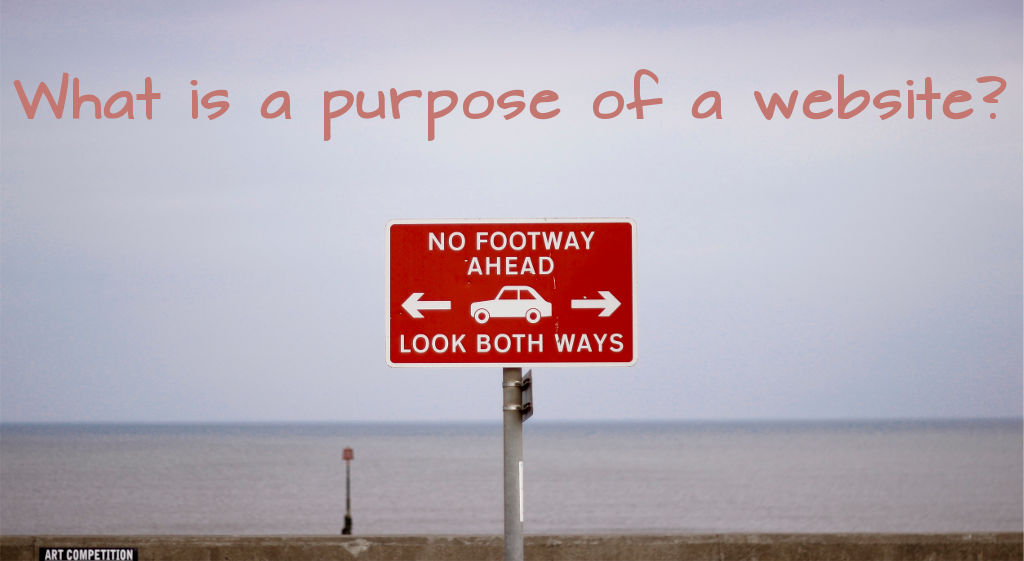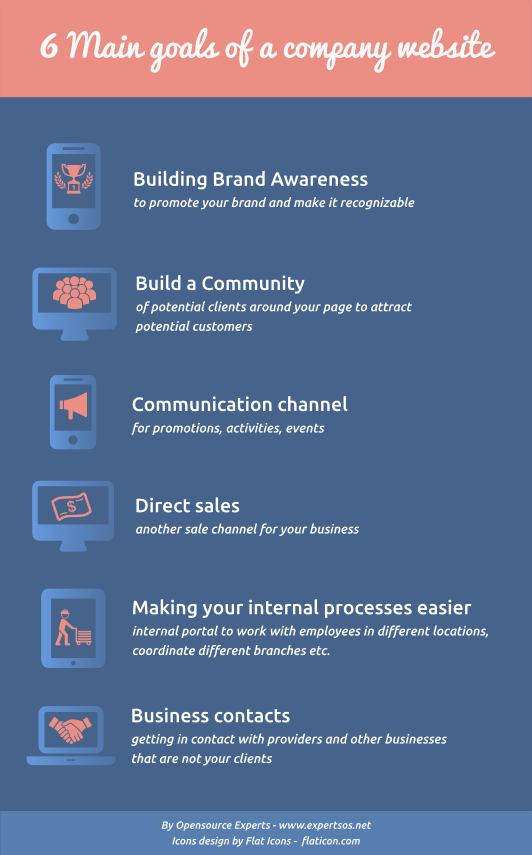In part 1 of our series Back to Basics we talked about what the purpose of having a website is. In this part we'll concentrate on some aspects (goals) only briefly mentioned in part 1.
So let's get started.
While having a website to attract potential customers or directly sell your products is pretty obvious, there are two kind of goals that are almost forgotten:
-
To have a website to attract potential providers or other business related contacts (that are not clients) ie. hiring new employees
- To have a website to improve internal processes, make your organization work and communicate better.
I will now try to explain these two better and what it means for your business.
Attracting potential providers and other business related contacts
Let's say you want to have a website where you promote your brand and your products, so basically you are looking for new customers but at the same time, as new customers start to visit your website, also other people will do it for other purposes.
Every day thousands of businesses are searching through the web to find (just like you ) new clients. And for some of those people YOU are their client. In other words there are providers from many industries looking for you. Having a website prepared also for them can help you engage with them and open new possibilities for your business. In many industries providers are crucial. For example in retail, where you basically resell products, contacting with new providers effortlessly can give you advantage over your competition because you will be able to give them more interesting products or a better price etc. Also having backup providers can be fundamental for making your business run smoothly.
Even if providers are not very crucial for your activity, it is always a good thing to get in touch with potential new ones as this can lower your running costs (by finding ie cheaper providers for office products you use everyday), or make your processes easier (by being offered a software or solution that will agilize ie. processing payment from clients etc.).
You will say, no big deal I can find them myself. But you are overlooking one crucial thing. It is very important to understand that normally, if you want to change a provider or look for new products or services you need it will cost you some effort and time to find those, communicate with them etc.
But, oh irony, those companies you are looking for are at the same time looking for you, so why not just let them come to you in the way you like? If you don't need their services right now but you see that they offer interesting thing just save their address and contact details in your database or even in an email box. The additional advantage here is that you can be approached by companies you wouldn't be able to find yourself (because they are still young and don't score well in search engines or they don't have web page in your language yet by they do have sales staff that can communicate with you).
A well crafted website can do that for you automatically, you just need to connect special contact form for providers with your CRM application or online store database or whatever you are using and it is set.
Just as you have a contact form for clients in which you state in a few simple sentences why they should contact you, you could also have a contact form for providers in which you could state what services/products you are looking for and they will come, trust me :)
And getting contacted by providers is just one example, this way you are able to make contacts with many different business globally which will have different relations with your company. You could find investors or new employees or opportunities to exchange information and experiences with other companies etc.
In fact, using a website to attract potential employees is also an interesting feature. It can substantially ease your hiring process by selecting candidates on the page by using question forms or even better - challenges that the future employees need to clear in order to contact you and leave their CV or be qualified to have a meeting with your HR department.
Actually, each of this uses is interesting on its own and deserves a separate blog post if not a book about how this goal should be achieved.
How a website can agilize internal processes
In a few simple words, you can "connect" your web page to any piece of software to make some tasks easier, faster or even totally automatized. One great example of such bundle is any e-commerce platform. On the visible side you have a store where customers can buy products and on the invisible (back-end only accessible for you or your employees) you have a system to automatically process payments, manage customer contact details, send automatic order status updates by email or even sms etc.
It is just one example. Because posibillities are endless. You could "connect" your page with CRM software, to manage your potential customers and prepare marketing campaings or, like mentioned in the previous paragraph, have a website to recruit potential employees. You could also have, let's say, a real estate company website where you sell your properties and a backend that helps you keep track of new properties submissions, renting them, sales, etc. Then you can export all the data or prepare reports so you know what to change and what is doing well.
When having many employees or branches, specifically prepared web portals can help you even further. Apart from a public visible web site, you can have a private portal (accessed with a passowrd or other security means) where you can exchange information and work in real time (using chat, advanced conferencing and virtual white board platforms) with teams from branches from other town, country or continent.
The same can be done with specific groups of clients, for example manufacturing company could have a "client area" on a website for wholesellers or retailers where they can download product descriptions, photos (for promoting them in their stores), or resolve issues and questions with your staff.
That leads to another example: a website that is made as a support platform for existing customers, be it live chat, simple question and answers page, ticketing system or closed forum.
I could really go like that (almost) forever, but I think that you already got my point :)
The possibilites of addressing those new goals, agilizing internal processes and bussines comunication with non-clients are endless. You just need to think outside of the box, you need to realize that a website can have many other purposes than attracting customers or direct sales. It can give you a lot more.
What's more, if the website is well made you can extend its funcionality in any moment. Websites are powerful tolls for expanding your company if they are well and thoughtfuly made.
Do you know any other examples of non customer related functions of a website? Share them in comments.


